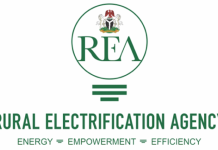Following the Central Bank of Nigeria’s (CBN) directive to increase capital reserves, Nigerian banks are strategizing to raise approximately N4 trillion in fresh capital, with options ranging from Eurobonds to foreign investments.
The CBN’s recent circular, which mandates commercial, merchant, and non-interest banks to bolster their capital requirements, has spurred a flurry of activity within the banking sector. In response, financial institutions are considering various avenues to meet the stipulated capital thresholds.
Under the new guidelines, banks with international authorization are required to elevate their capital base to N500 billion, while national and regional banks must achieve N200 billion and N50 billion, respectively. Similarly, non-interest banks are tasked with reaching capital levels of N20 billion for national authorization and N10 billion for regional authorization.
To navigate these capital requirements, banks are exploring three primary avenues outlined by the CBN: issuing new common shares through public offerings, rights issues, or private placements; engaging in mergers and acquisitions (M&As); or upgrading/downgrading their license categories.
Among the financial institutions affected by the directive are Access Holdings, FBN Holdings, FCMB Group, Fidelity Bank Plc, Stanbic IBTC, Zenith Bank Plc, United Bank for Africa, Sterling Financial Holdings, Guaranty Trust Holding Company Plc, Wema Bank, Polaris Bank, and Jaiz Bank.
However, despite significant retained earnings, totaling approximately N4.8 trillion among the twelve banks mentioned, these funds cannot be utilized due to the CBN’s directive focusing solely on share capital and share premium.
To bridge the gap between existing reserves and required capital thresholds, banks are exploring diverse fundraising options. Some are considering mergers and acquisitions, eyeing potential alliances or acquisitions of weaker institutions. Others are contemplating entry into the Eurobond market, leveraging existing participation or planning new issuances. Additionally, private placements targeting foreign investors are being explored as a viable avenue to secure fresh capital.
While banks are eager to comply with the CBN’s policy directives, the exact modalities for capital raising are yet to be finalized, with institutions carefully weighing their options amidst the evolving regulatory landscape.
The concerted efforts within the banking sector reflect a commitment to strengthening financial resilience and capital adequacy, ensuring the stability and sustainability of Nigeria’s banking industry in the face of evolving economic challenges.













